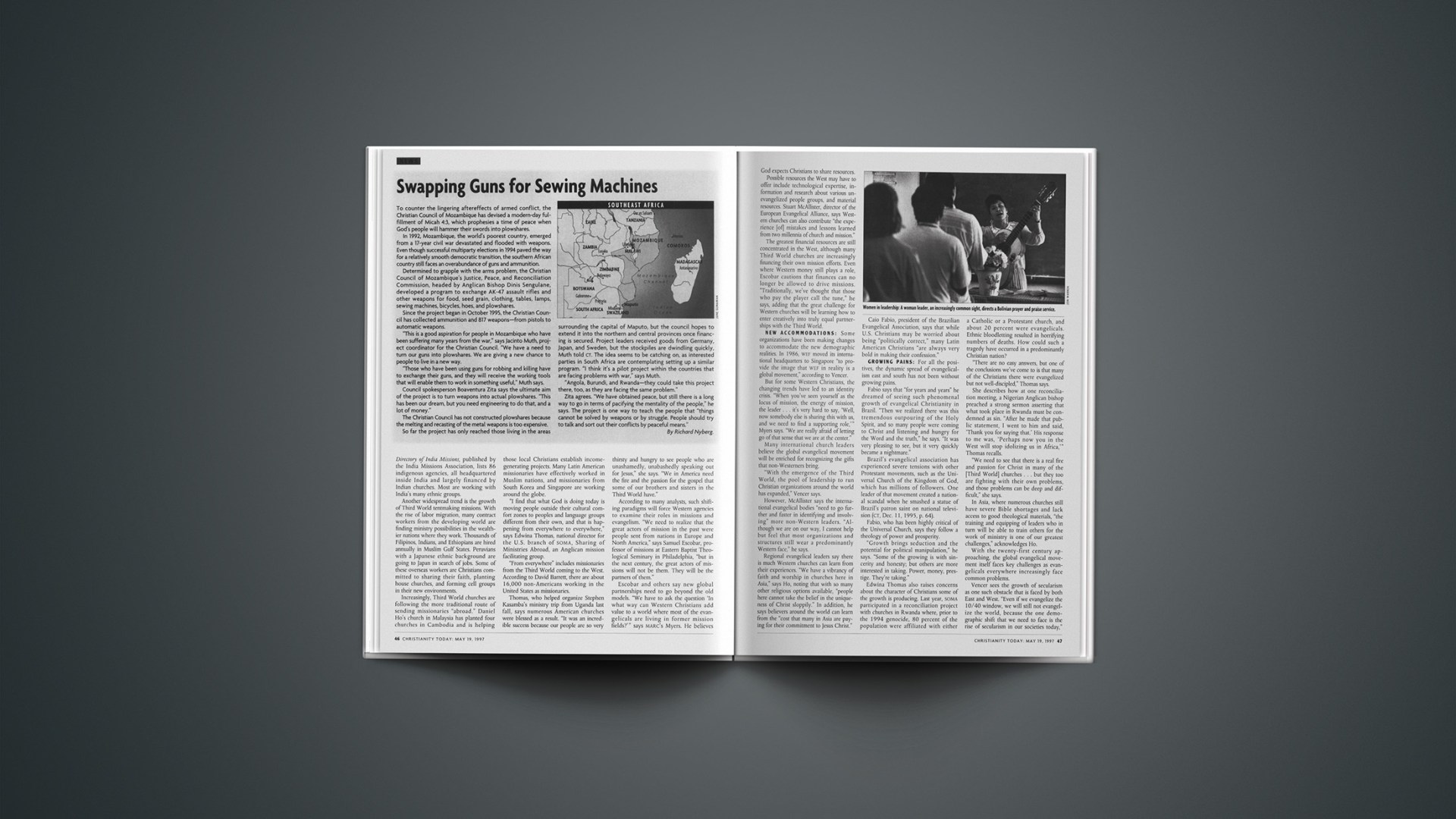To counter the lingering aftereffects of armed conflict, the Christian Council of Mozambique has devised a modern-day fulfillment of Micah 4:3, which prophesies a time of peace when God’s people will hammer their swords into plowshares.
In 1992, Mozambique, the world’s poorest country, emerged from a 17-year civil war devastated and flooded with weapons. Even though successful multiparty elections in 1994 paved the way for a relatively smooth democratic transition, the southern African country still faces an overabundance of guns and ammunition.
Determined to grapple with the arms problem, the Christian Council of Mozambique’s Justice, Peace, and Reconciliation Commission, headed by Anglican Bishop Dinis Sengulane, developed a program to exchange AK-47 assault rifles and other weapons for food, seed grain, clothing, tables, lamps, sewing machines, bicycles, hoes, and plowshares.
Since the project began in October 1995, the Christian Council has collected ammunition and 817 weapons—from pistols to automatic weapons.
“This is a good aspiration for people in Mozambique who have been suffering many years from the war,” says Jacinto Muth, project coordinator for the Christian Council. “We have a need to turn our guns into plowshares. We are giving a new chance to people to live in a new way.
“Those who have been using guns for robbing and killing have to exchange their guns, and they will receive the working tools that will enable them to work in something useful,” Muth says.
Council spokesperson Boaventura Zita says the ultimate aim of the project is to turn weapons into actual plowshares. “This has been our dream, but you need engineering to do that, and a lot of money.”
The Christian Council has not constructed plowshares because the melting and recasting of the metal weapons is too expensive.
So far the project has only reached those living in the areas surrounding the capital of Maputo, but the council hopes to extend it into the northern and central provinces once financing is secured. Project leaders received goods from Germany, Japan, and Sweden, but the stockpiles are dwindling quickly, Muth told CT. The idea seems to be catching on, as interested parties in South Africa are contemplating setting up a similar program. “I think it’s a pilot project within the countries that are facing problems with war,” says Muth.
“Angola, Burundi, and Rwanda—they could take this project there, too, as they are facing the same problem.”
Zita agrees. “We have obtained peace, but still there is a long way to go in terms of pacifying the mentality of the people,” he says. The project is one way to teach the people that “things cannot be solved by weapons or by struggle. People should try to talk and sort out their conflicts by peaceful means.”
Copyright © 1997 Christianity Today. Click for reprint information.










